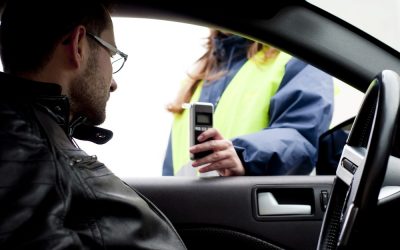Many people arrested for driving under the influence (DUI) assume that their case is hopeless because the evidence against them is solid. However, most of the time, they are misguided into believing so. Police officers can make errors, administer tests incorrectly, or mess up investigations.
An experienced Anaheim DUI lawyer will know how to identify these issues and develop a defense strategy to win client cases. If you were arrested for a DUI, now is the time to get help. You need a DUI attorney in Anaheim, CA, to look into the details of your case so that you do not have a charge ruin your life.
Risks of a DUI in Anaheim
An experienced attorney will be able to prepare you for the potential risks you will face if you are found guilty of driving under the influence of alcohol or a related offense. The extent of the penalties you are facing will depend on several factors, including:
- Whether you have previously been charged with or convicted of drunk driving or a DUI-related offense
- Whether a child was involved
- The location you were stopped at
- How much your blood alcohol content exceeded the legal limit by
- Whether there was a firearm or other weapons in the vehicle
- Whether there were drugs in the vehicle
These aggravating factors can determine not only the extent of the charges against you and the penalties you are facing but also the opportunity for your criminal defense lawyer to leverage a pretrial diversion program or work out a plea agreement with the state’s prosecuting attorney.
Penalties for Anaheim DUIs
If you are found guilty of a DUI in Anaheim, you will likely be ordered to spend jail time incarcerated in either an Orange County jail or a state prison facility. You may also be ordered to pay thousands of dollars in fines, complete a set number of community service hours, and complete a drug or alcohol rehabilitation program as part of your conviction.
Furthermore, your reputation will be tarnished, and your criminal record will continue to follow you throughout your life unless you can eventually get your criminal record expunged.
If you want to clear your name of the allegations against you and avoid the severe penalties of a conviction, having a DUI attorney in Anaheim, CA, creates a strong defense for you that could be in your best interests.
Evidence that Can Be Used Against You in an Anaheim DUI Case
Knowing the evidence that will be used against you will help you understand our defense approach to your criminal charges or other penalties you may be facing. DUI attorneys are trained to use this evidence to seek weak spots. Law enforcement will make DUI evidence seem impenetrable and unquestionable, but this is rarely true.
Some of the main types of evidence used against you in DUI cases will be:
How You Were Driving
A DUI that results from being pulled over typically starts with a police officer noticing unusual or reckless driving, such as drifting into other lanes or off the road or weaving back and forth. The officer will decide to perform a traffic stop at this point.
More than 20 different driving patterns, as listed by the National Highway Traffic Safety Administration, could be seen as drunk driving. The NHTSA notes these cues “predict that a driver is DWI at least 35% of the time.” Erratic or unusual driving will be one of the first factors prosecutors mention in court.
Your Behavior
Police officers are trained to look for indications that a driver is intoxicated, and your case will be no exception. Once they pull you over, they will look for signs like:
- Watery or bloodshot eyes
- Smelling like alcohol
- Falling over
- Slurred speech
- Trembling hands
- Fumbling with your keys
- Slow verbal responses to questions
While some of these can be more evident signs of intoxication, others could result from innocent factors like nervousness at being pulled over.
Results of Field Sobriety Tests
There are several standard field sobriety tests (SFSTs) an officer may ask you to perform after being pulled over. These tests are meant to evaluate if you are acting intoxicated or not. Examples of SFSTs could be walking along a line, standing on one leg, or saying the alphabet backward. You should know that you can legally refuse to perform a field sobriety test.
Blood or Breath Test Results
Many authorities treat these tests as key DUI evidence, but it is not. These roadside tests can often be unreliable, especially the breathalyzer tests, compared with post-arrest tests at a police station or hospital. Scientific studies have challenged the accuracy of field sobriety tests many times.
In California, a police officer will usually administer a breath or blood test to detect your blood alcohol concentration level. Urine tests are only utilized if the first two are not available.
Incriminating Statements
Anything you say after being pulled over for a DUI can be used against you. Police officers will try to get you to admit to drinking and may ask questions like, “How many drinks have you had?”
It is always best to be polite to police officers without offering any information that could incriminate you.
Officers do not have to read your rights until you have been arrested, but they can still use anything you said, even before they told you those rights, against you.
Charges for a DUI Involving Drugs in Anaheim
DUI laws for Anaheim apply to driving while under the influence of drugs, both legal (prescription drugs) and illegal, and alcohol. Even recreational drugs that are legal in California, such as marijuana, count if they are considered as impairments to driving ability. However, the evaluation of drug DUIs is different from that of alcohol.
There is a legal threshold for alcohol DUI. If you have a blood alcohol level of 0.08% or higher, you are considered impaired. With drugs, however, the research is not solid enough to have a clear threshold, and different drugs can vary in their strengths.
Some details to know about the drug DUI charges you may be facing are:
- Since there is no set number yet, any amount of drugs in your system while driving can count as a DUI.
- The consequences for a DUI arrest involving drugs are the same as for a regular DUI in California, except there is no license suspension right away. If convicted, you will be facing a license suspension.
- You might be charged with additional drug possession and other DUI charges. This is only if the police find drugs on you or see you throwing away drugs. Even a blood or urine test does not determine possession.
- Prescription medications and over-the-counter drugs may lead to a drug DUI. It comes down to whether you were impaired. Drugs like Benadryl or prescription pain relievers that cause drowsiness can count as impairment.
What Your Anaheim DUI Lawyer Can Do for You
Anaheim DUI attorneys can research the facts and investigate the circumstances surrounding your charges. A diligent attorney can:
- Gathering evidence
- Examine witness testimonies
- Assess the potential sentences
- Analyze the prosecutor’s case against their client
- Review search and seizure and drug testing procedures
- Assess audio and video evidence and look for discrepancies
- If your rights were violated in the process, they will also try to have related evidence thrown out
With the right Anaheim DUI lawyers, you can attempt to negotiate a plea deal with the prosecutor. Our effective defense may get your bail, charges, or sentences reduced. If an agreement is not reached, our criminal defense attorneys will take your case to trial and represent you there.
Avoid a DUI Trial and Consider Anaheim Pretrial Intervention
There are specific situations where going to trial should be avoided at all costs. This is particularly true if the criminal penalties and collateral consequences of a conviction are likely to hurt your life. Fortunately, if this is your first time being charged with drunk driving, a DUI lawyer in Anaheim, CA, could help you be considered for a pretrial diversion program.
Pretrial Diversion
With pretrial diversion, you can avoid going to jail and dealing with some of the more severe consequences of a guilty verdict. However, not everyone will qualify. Generally, pretrial diversion is only available for individuals facing their first offense. If anyone were injured or killed due to your alleged drunk driving, you would also be disqualified.
Once you enter a pretrial diversion program, there are specific requirements you must be prepared to follow. For example, you might need to undergo random drug or alcohol testing, meet regularly with a probation officer, and abstain from drug or alcohol use.
Additionally, you may be required to install an ignition interlock device (IID), attend group therapy, obtain gainful employment, and follow housing restrictions. If you cannot fulfill the terms of your pretrial diversion program, it could be devastating for your case. You can expect the district attorney to proceed with the original DUI charges against you and be subject to the severe consequences of a drunk driving conviction.
Defenses Your Anaheim DUI Lawyer Can Make in Your Favor
Some loopholes create legal issues within the prosecutor’s case. Your DUI attorney in Anaheim can make any of the following defenses to prove your innocence or lessen your charges:
- The arrest occurred during an unlawful police stop.
- Outside factors affected your field sobriety test.
- The chemical test was administered incorrectly.
- The chemical test was inaccurate.
- The law enforcement officer did not inform you of your rights.
- The tests performed by police officers, such as driving patterns, do not truly prove drunkenness.
- Officers aren’t always reliable when reporting behavior.
Get Connected with an Anaheim DUI Lawyer Today
An experienced Anaheim DUI lawyer can assess your case and look for details to help improve your outcome. Do not give up hope until you have spoken with a legal professional who knows how DUI cases work and how to fight for you.
To get connected with a DUI defense attorney, give us a call today or fill out our online contact form. We can start helping right away by offering you a free consultation.






